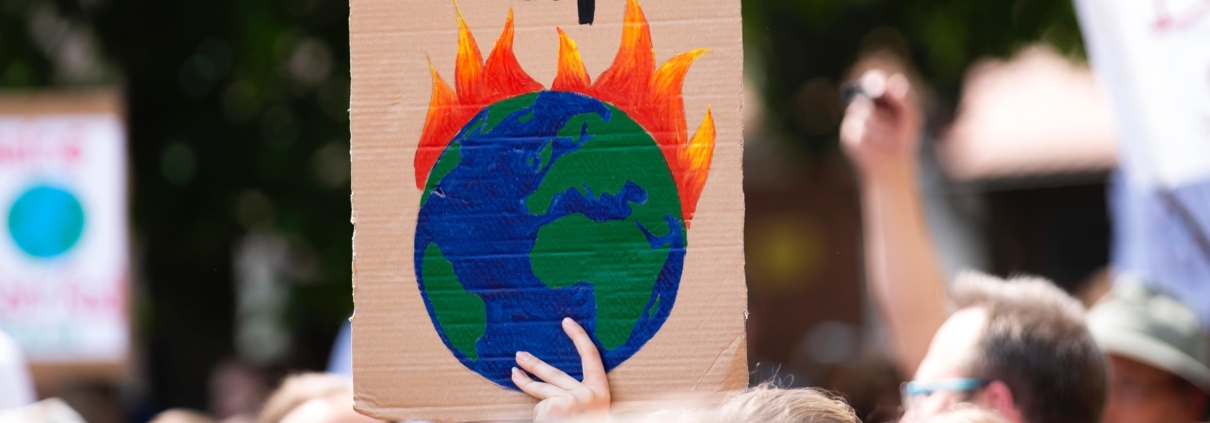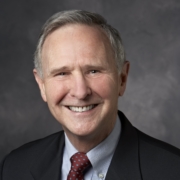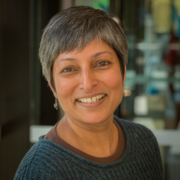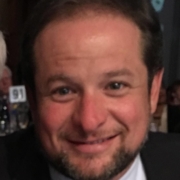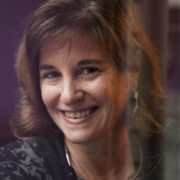School students all over the globe have declared a “Climate Emergency.” For some time now, youth have been striking for immediate and effective action to stop global warming and secure the habitability of our planet. Greta Thunberg is perhaps the most recognizable student protesting. You’ve probably seen her moving speech at the United Nations last month.
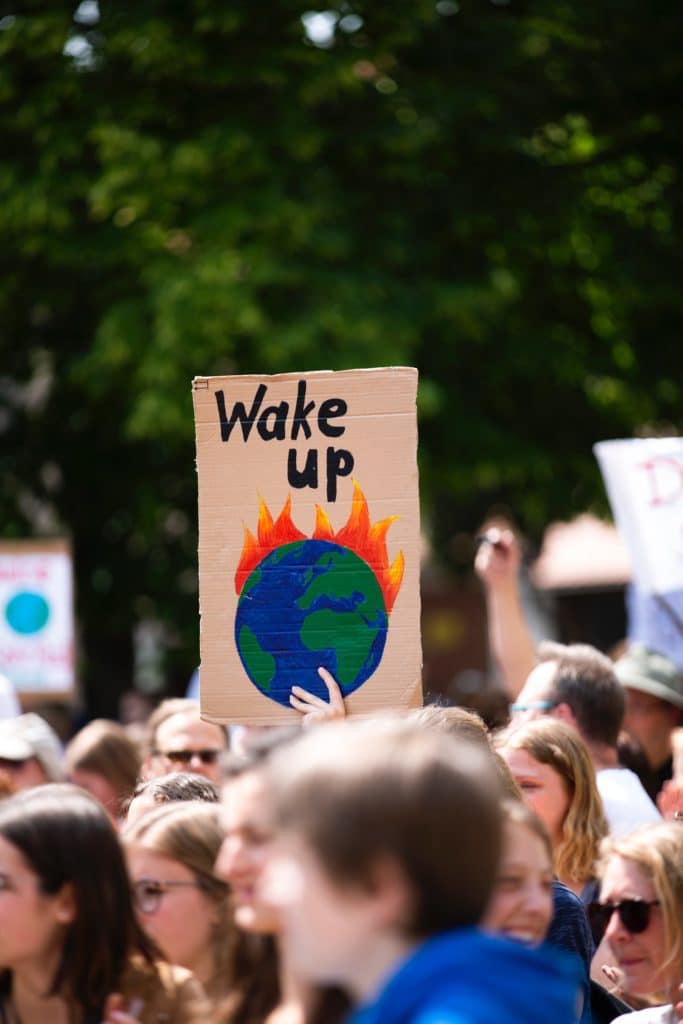
In the context where students skip school to protest, what role do teachers play? More broadly, what is the role of education in times of climate crisis?
One group of university professors and activists have thought deeply about these questions. They have recently launched a “Call to Action” for educators, asking signatories to transform their pedagogies and curricula, realign research agendas, and reformulate policy frameworks – all in line with the climate crisis and other environmental challenges. In short, signatories are asked to voice their concerns any way they can in their professional work in and outside the classroom.
By early November, almost 2,000 educators signed the Call to Action.
Today’s show takes you behind the scenes of this Call to Action, connecting the student protests and the climate crisis to the Sustainable Development Goals and Global Learning Metrics.
(Photo credit: https://unsplash.com/s/photos/climate-change)
Sign the call to action here: https://educators-for-climate-action.org/petition/
Transcript, Translation, and Resources:
News anchor 1 1:49
Children around the world have missed classes to stage street protests against climate change. The first rallies in Australia and New Zealand yesterday, drew 10s of thousands of people.
News anchor 2 1:59
Groups of students across America say they will skip class tomorrow for the first national school strike over climate change. Tomorrow’s protests are planned in more than 130 US cities and about 90 countries worldwide.
British Parliament speaker 2:12
Kids should go to school. That’s what we’re committed to. We do not support our schools being turned into parliaments, Mr. speaker. What we want is more learning in schools and less activism in schools.
Greta Thunberg 2:26
When school started in August of this year, I sat myself down on the ground outside the Swedish parliament. I school striked for the climate. Some people said that I should be in school instead. Some people said that I should study to become a climate scientist so that I can solve the climate crisis. But the climate crisis has already been solved. We already have all the facts and solutions. And why should I be studying for a future that soon maybe no more when no one is doing anything to save that future.
Will Brehm 2:58
That was Greta Thunberg speaking in December of 2018. A month earlier, a group of independent students had called on students from around the world to join them in a climate strike. On Friday, November 30th of that year, the first day of the UN climate conference in Paris, over 50,000 students in over 100 countries answered that call. The students demands were clear. They wanted 100% clean energy. They wanted to keep fossil fuels in the ground, and they wanted to help climate refugees. Students have been striking every Friday ever since.
Greta Thunberg 3:48
You have stolen my dreams and my childhood with your empty words. Yet, I’m one of the lucky ones. People are suffering people are dying, entire ecosystems are collapsing. We are in the beginning of a mass extinction. And all you can talk about is money and fairy tales of eternal economic growth. How dare you?
Will Brehm 4:17
That was Greta in September 2019, at the most recent UN gathering in New York City. Her outrage has inspired millions of people to take climate action. And this activism by students has raised some difficult questions for teachers and educators.
Daniel Fischer 4:36
Why? Why should we be educated if the decision makers don’t listen to the educated people. So in a way, they are actually questioning the very purpose of schooling.
Will Brehm 4:48
That was Daniel Fischer, and assistant professor at Arizona State University. Like Daniel, many educators have felt the need to do something in response to the global movement of students strikes lead by Greta. The group The Scientists for Future in Germany, Austria and Switzerland formed in direct response to the strikes. In Belgium, over 3400, scientists and academics signed an open letter supporting the strikes. Perhaps most notably, the UN Secretary General embraced Greta’s ideas, admitting that his generation has failed to address climate change. Now, of course, there’s also been negative responses to Greta and the striking students. The former UK Prime Minister Theresa May criticize the movement as a waste of learning time. And in Australia, the Prime Minister Scott Morrison, called for more learning and less activism. In the UK some students were even punished or arrested for striking.
Greta Thunberg 5:55
Adults keep saying we owe it to the young people to give them hope. But I don’t want your hope. I don’t want you to be hopeful. I want you to panic. I want you to feel the fear I feel every day. And then I want you to act. I want you to act as if you would in a crisis. I want you to act as if the house was on fire. Because it is.
Will Brehm 6:25
Greta raises some fundamental questions about the role and purpose of education. Should students stay in school to learn the knowledge older generations have deemed important? Should they skip school entirely to fight against mass ecological extinction, perhaps the biggest threat facing our planet? And how should teachers and educators best support these students? It is this last question that I want to hone in on in this episode. For the past six months, the FreshEd team has been following a group of educators trying to craft a response to the striking students specifically, and the climate crisis more generally. A group of scholars at Arizona State University, ASU for short, decided that it was time educators took a stance. Gustavo Fishman, Iveta Silova, and Daniel Fischer, who you met earlier, wanted to make sure education does not reproduce unsustainable realities. They felt that they were uniquely positioned to act.
Gustavo Fishman 7:32
Gustavo Fishman, Professor, education policy and evaluation at Arizona State University. We are educators. And so one responsibility that we have is to work with youth, the next generation with youth. And we have a group of youth that are striking and calling for action and they need solidarity because they are you know they are right. Number one. And second, they are being attacked!
Iveta Silova 8:02
Iveta Silova, professor of education policy and evaluation at Teachers College in Arizona State University and also the director of the Center for Advanced Studies and Global eEducation here. I think as individual researchers and policymakers, we actually have to kind of rethink our own priorities to so we can go and strike as much as we want to. But we also have to take very concrete action, I think as individuals, and also as representatives of the institutions where we work. And it is changing our own research agendas. It is also influencing university research agendas, is influencing policy conversations and I think we are as academics as educators in a very good position to do that.
Will Brehm 8:56
The ASU team assembled a group of diverse educators from around the world to help draft the call to action for educators. We followed this group’s many conversations as they crafted a document that encourages educators to take climate action in solidarity with students. At first, this document was called a manifesto. But as the conversation among these scholars unfolded, they decided to call it a call to action to better reflect what they were trying to do. You will hear both the terms manifesto and call to action throughout this episode, but the official title that was decided on was call to action. What I found so interesting following this process along is that the climate crisis call to action for educators began in a seemingly unlikely place, long before this round of student protests. It all started at two conferences on global learning metrics held in 2016 and 2017 at ASU, here’s the quick backstory. Measuring learning across the world is tricky business. What subjects should be measured? Math, history, language, science, social studies, gym? Is learning only composed of so called academic knowledge? What about the ability to interact with fellow classmates? Or a student’s ability to be resilient? Or the ability to learn from mistakes? How do we measure these types of learning? See, it’s tricky business. And I should say that not everyone agrees that we should even try to develop Global Learning metrics in the first place. But even if everyone in the world could agree on what to measure, and they certainly don’t, we would still be left with the difficult decision over who and how to measure. What age student should take the test? Which questions should be used? And how can we ensure that these questions can be used in every context and every language worldwide? This is a massive problem on top of a massive problem. But of course, that hasn’t actually stopped the development of global learning metrics. Historically, these global learning metrics have been collected on cross-national examinations, that test math and language skills. Think of the OECD’s Pisa test, which is perhaps the most famous these days. One of the main reasons for the focus on math and language subjects is that they are simply easier to construct comparable questions globally. But even that is challenged. So of course, these global learning metrics don’t capture everything that goes on in an out of school. Learning is much more than math and language skills. Everyone recognizes that, but this was made explicit in the education Sustainable Development Goal, known as SDG 4, which was announced by the UN in 2015, SDG 4 for takes a very broad definition of what quality education means touching on topics like global citizenship and sustainability. So, basically SDG has thrown a big monkey wrench into the whole idea of global learning metrics. How on earth can we think of quality education, and its measurement, when we must consider abstract yet increasingly vital ideas like sustainability? Here’s the ASU team again.
Iveta Silova 12:40
I think to me, the most interesting realization was how highly contested was the discussion around Global Learning metrics? So it became clear is that there was a consensus globally about how to measure access to education, but there was no consensus whatsoever how to measure quality of education. So there is this major pressure from large international organizations like OECD or the World Bank to use large scale assessments, student achievement tests, to measure education quality, and as a result, a lot of really important education related aspects are falling through the cracks. And when we bring the discussion into the SDG 4 conversation, sustainable development goals, then it becomes very clear is that the SDG 4.7, which has to do with environment, which has to do with social justice, sustainable lifestyle, all of this in relation to education falls through the cracks only because it’s difficult to measure.
Gustavo Fishman 13:45
We cannot ignore issues of sustainability and environmental crisis. And we need to re-engage the discussion of Global Learning Metrics in relationship to sustainability.
Iveta Silova 13:59
Equally important also, concern was de-linking education from economic growth, again, something that drives International Development Agenda very forcefully, and really displaces and disconnects education from all the other important areas like environmental sustainability.
Will Brehm 14:22
Doesn’t this remind you of what Greta said?
Greta Thunberg 14:25
We are in the beginning of a mass extinction, and all you can talk about is money and fairy tales of eternal economic growth!
Iveta Silova 14:35
I see it almost as a reset button, you know, something that could bring political urgency to the conversations on education. It’s not only about education and economic growth, and it’s really about a much broader picture. So in my mind, we can’t really continue the business as usual when the planet is basically dying and the humankind is on the verge of extinction. And It just doesn’t make much sense to keep focusing as researchers and educators on increasing our literacy and numeracy scores among the students. Because at the end of the day, you know, does it really matter whether we die on a damaged earth’s literate and numerate, right or how literate and numerate we are, as we die?
Daniel Fischer 15:21
We have to ask ourselves, what is the role of the educational system and producing this unsustainable state that we are observing right now? And what could be the contribution of the educational system in moving us forward into a sustainable, more sustainable direction? Because sustainability is not just the science behind it not just Earth Science and understanding how climate changes and global warming happens. This is not what we call for in the first place, to transmit this kind of knowledge or infuse this knowledge into into the education system. But it’s more broadly sustainability is an idea a Civilization idea, I would say, of living within the limits of our planet in a dignified and humane way. And and this is actually what education should be concerned with; enabling students to live this kind of life and contribute to the to the broader cause of sustainability, which is an idea that needs to be discussed reshaped that it’s not as it’s not a it’s not a specific policy or a technical concept that you can just implement. It’s an idea, but this will be at the heart of education, education processes.
Will Brehm 16:33
So this conversation on Global Learning metrics quickly turned to questioning the very purpose and meaning of education. Now, all of us have probably attended some form of education. Many have probably sat at desks in a building that we would call a school where a teacher stood at the front teaching. We learned a variety of subjects and progressed grade by grade until we graduated, but the underlying assumption about education, if we recognize it or not, has been to create future workers in the labor market, and obedient citizens in society. This is pretty much been the case since industrialization. And in fact, the model of public school as we know it today, has roots in the German military. Now, it’s not unreasonable to value education for its ability to improve people’s lives in terms of better employment opportunities, as well as create cohesive societies. Those are very important, and they’ve created the world of today. But we must also admit that these values of education are part of the reason that we have created a world that is unsustainable. And compounding this problem of the design of education are other educational activities, such as research practices that don’t consider climate or the increased air travel because of study abroad, or academic conferences. So taken together the impact on climate from education becomes quite obvious. Does this mean that schools and educators and academics alike are complicit in the very mass extinction students are now protesting against? That seems like an existential crisis for the field.
Daniel Fischer 18:18
It is worth noting that this is not the work of ignorant people, it is rather largely the result of work by people with Bachelor’s, Master’s degrees, PhDs. So it’s actually the education system that is producing people who are making these decisions that have brought us here.
Iveta Silova 18:35
This is this modern education, modern schooling perhaps also situated within a western paradigm too that really focuses on economic growth, technocratic determinism, on human exceptionalism. I think that’s another key issue here, liberal individualism, over environmental concerns right and over kind of more relational maybe situating of the human within life on earth. And it’s really problematic that most of our efforts so far really has been based on this assumption that improving existing forms of education will positively impact environmental sustainability. So we hear all the time, if we only get more kids to school, if we only raise their literacy and numeracy achievement scores, then we will get closer to achieving SDGs or positively impacting environmental sustainability. And I think this assumption is really surprising and it’s also very highly problematic given that the world has been the most educated this it has ever been in the history and yet we are nearest to environmental breakdown. So I think that really kind of reaffirms, to me that education really is at the core of the problems that we are facing and we may as well acknowledge and admitted and begin addressing this big problem.
Will Brehm 20:10
Our education system is by design, maintaining a capitalist status quo, where future laborers are socialized into desiring economic growth at all costs. And now we’ve reached a tipping point where students are saying no more, leaving educators stunned. But we must respond!
Daniel Fischer 20:31
I think some of the problems that we’re observing is that education so far is not really problem solving in its approach, it’s de-localized, so we’re not really concerned with not not sufficiently concerned with the problems that we’re facing in our communities and what sustainability challenges they they pose and how we can address these challenges.
Will Brehm 20:52
The question at hand is, how do we even change educational practices and systems and research to prevent and prepare for the climate crisis?
Daniel Fischer 21:02
First of all, there is no cut and dry solution to that answer to that question, right, there’s no model out there that we can just take and roll out all across the globe and this will solve it. So this has to be said, first of all, and I’m also hesitant to be candid to get too specific in this statement about requiring or requesting very specific changes in the education system. I think the main purpose of this statement should really be to facilitate, to kick off a conversation about these issues and not just leave it to the expert groups who has to figure out the indicators for 4.7 now, so this is as a broader framing.
Iveta Silova 21:40
We cannot continue to do more of the same and reproduce the so called best practices when we know at this point in time that they have led us to this brink of the environmental collapse. But I would like also this call that call for action or manifesto to be a challenge to the international development community as well, especially for all of those colleagues that we work with, who are working in the field of education in the context of international development.
Gustavo Fishman 22:11
It’s also the possibility of coordinating with other initiatives that must be out there that we don’t know. The more, you know, different sectors manifest and express solidarity or the intentionality to contribute to the change could be a way of connecting and creating stronger networks.
Will Brehm 22:34
As I watched the call to action come together, I was unsure if it really was the best way to make social change. Most of the meetings seemed focused on technical issues, and not the larger questions at hand What is the purpose of a call to action, and how can it even cause social change? To me, it seemed like the call to action was a publicity stunt aimed at dominating the news cycle or social media feeds. And that might have been the case. But I guess as I think about it, motivating people to change their own practices is actually needed, no matter how it’s accomplished. Showing solidarity with students is actually valuable. Even if it’s only discursively. I struggled over the value of the call to action, and whether it was something I should actually sign. In the end, I decided to sign it, because, well, I figured it couldn’t hurt. We have to try everything to begin changing the ways in which all aspects of education are currently structured. I agree with that critique. And so I guess, if the call to action works, and people change their behaviors, great. If not, no problem, we’ll move on to the next action. It was with this background that a group of educators developed the call to action. They are deeply committed to education, but believe it needs a fundamental rethinking. They see a political opportunity opened up by the striking students and want to help them push for massive social and economic change.
Greta Thunberg 24:23
I want you to act as you would in a crisis. I want you to act as if the house was on fire. Because it is
Will Brehm 24:32
What does this call to action actually say? Here are some members of the drafting committee reading it.
Drafting Committee 24:40
We are educators who declare our solidarity with the students’ uprising for climate justice action. We call on our fellow educators globally to respond to the students’ appeals. We need to act now. Children and young people across the globe are rising up against a systematic failure to address the climate crisis. By strategically leaving their classrooms and organizing mass protests, they are demanding immediate action to reduce carbon emissions, halt global warming, and combat mass species extinction. Education is implicated in this climate crisis. Despite efforts stemming from the UN Decade of Education for Sustainable Development, schools and higher education systems continue to prioritize workforce supply for economic growth over environmental sustainability. We know that fossil-fuel dependent profit-driven activities have escalated global warming and are exacerbating the climate crisis. Scientists have warned us that the planet’s systems are dangerously close to irreversible tipping points. Students are well aware that we live in environmentally precarious times and that they face an uncertain future. In the face of sobering scientific evidence of a climate crisis, the business-as-usual of education is not acceptable. We must radically rethink the purpose of education and make responsible changes in our classrooms and academic fields. We need to learn different ecologically attuned knowledges, educate for environmentally just and secure futures, cultivate an ecological consciousness about the interdependence of all beings, and challenge the unequal global power relations that drive reckless economic growth. We need to foster the types of learning that nurture non-exploitative relations with the natural environment and that will help us recuperate and sustain life on a damaged Earth. We call on all educators at all levels to join us in: Supporting the striking students in their demands for immediate action to reduce carbon emissions and to restore the habitability of our planet. Transforming our own pedagogies and curricula to make them ecologically sound and responsive. Realigning research agendas and practices to address the climate crisis and other environmental challenges. Reformulating educational policy frameworks to prioritize intergenerational and environmental justice over reckless economic growth and development. Voicing our concerns by raising these issues with colleagues, parents, students, local communities, unions, professional organizations, and policymakers. To the striking students we say: ‘We stand with you. We know our house is on fire. It is urgent. Our future is at stake. We will take educational action for climate justice.
Greta Thunberg 27:56
We can no longer save the world by playing by the rules because have to be changed. We have come here to let them know that change is coming, whether they like it or not. The people will rise to the challenge. And since our leaders are behaving like children, we will have to take the responsibility they should have taken a long ago.
Will Brehm 28:17
The time is right to rethink education. The time is right to stand with students. The time is right to build solidarity among educators and students alike. The climate crisis will not wait for us. It’s on us to respond. The call to action can be found at educators-for-climateaction.org. If you’re an educator, please consider signing the call to action.
Listen to an extended interview with Iveta Silova, Gustavo Fischman, and Daniel Fischer about the Climate Call to Action:

